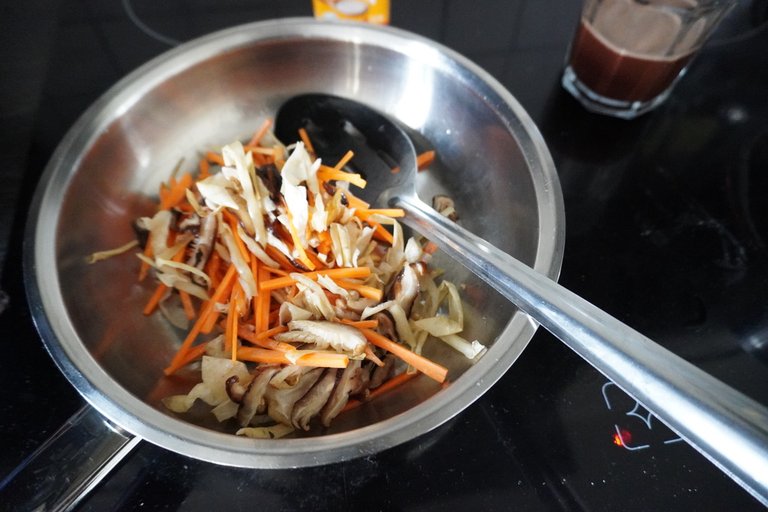Heating costs in Germany are high, and while I try to keep it minimal, I can’t avoid turning on the heater during cold days. But still, it feels wasteful… necessary, but wasteful…
In the middle of this dilemma, I discovered a practical way to make homemade dried foods through a book brought back from Japan by a Japanese Mama friend. It's Tabetsunagu Recipe by Yuko Anda.
While Anda’s methods don’t involve heating, I thought, why not try using the heater to speed things up? It worked surprisingly well! I started with dried daikon skin (Japanese radish) and moved on to shiitake mushrooms, oyster mushrooms, ginger, cabbage, zucchini, and more. Whenever I have leftovers, I slice them thinly and place them on the heater. Quick and easy!
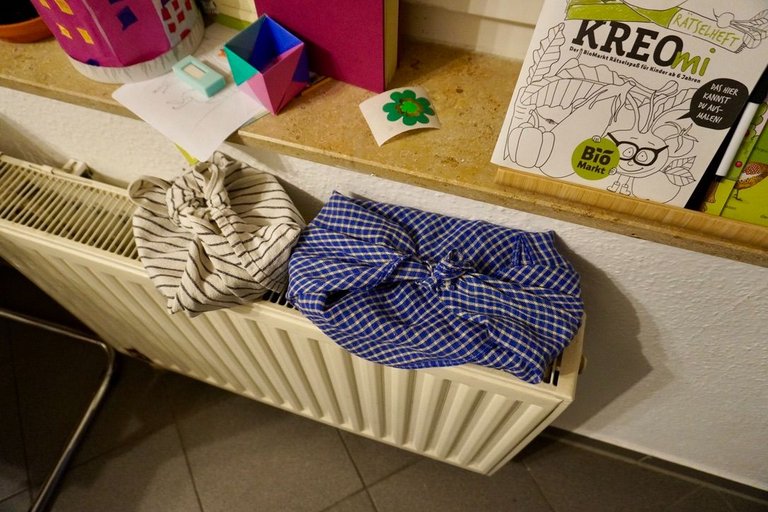
Among all of these, dried daikon has been the most exciting discovery for me, as it’s hard to find it in Germany. Now I buy daikon weekly, peel them, and dry the skins. I’ve become a dried daikon rich ☺️ Having a steady supply of dried daikon for stir-fried dishes makes me so happy 🥹
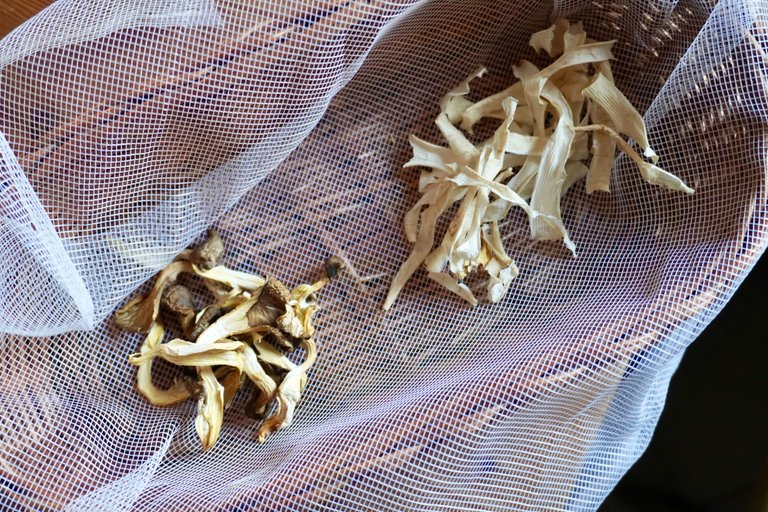
Once, I found half dried out German shiitake mushrooms at an organic shop. Since they were sold by weight, they were quite cheap. I bought a large batch with gratitude. Fresh German organic shiitake is relatively easy to find, but dried shiitake is usually imported and expensive. It also raises environmental concerns. Making my own at home solves both problems 🙌
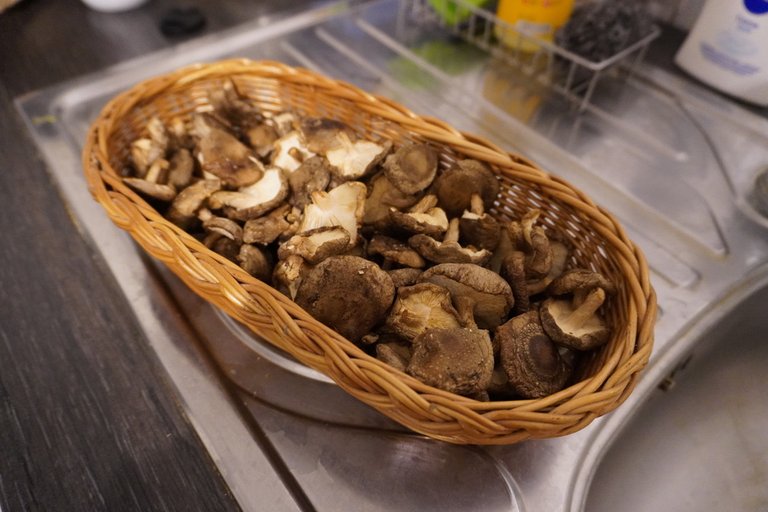
Shiitake mushrooms are said to increase their vitamin D content when exposed to sunlight, so I briefly placed them on my balcony for some sunshine.
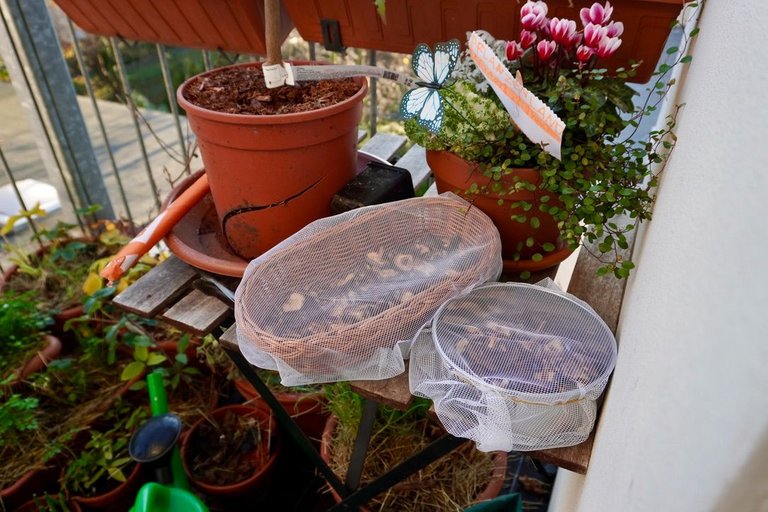
Ginger is another great vegetable for drying. I use it a lot, but in my household, I’m the only one who does. Often, it would dry out naturally before I could finish it, which felt wasteful. Sliced ginger dries beautifully on the heater in just two to three days. When needed, I can add it directly to a dish or crush it easily by hand.
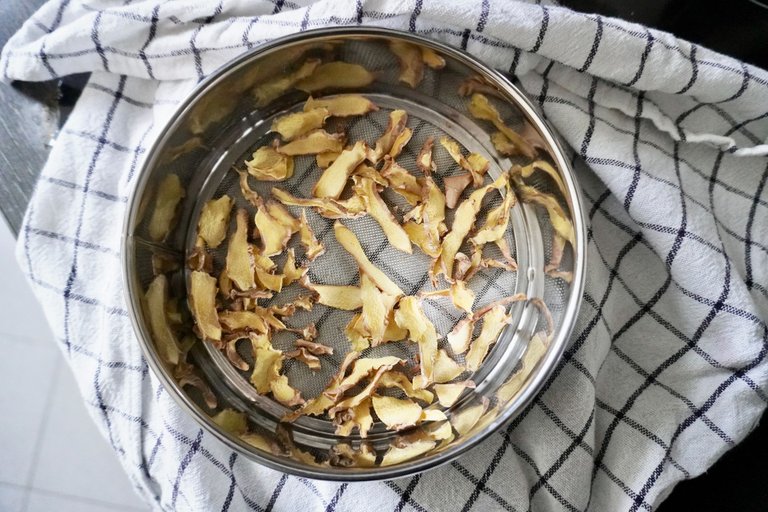
Looking ahead to summer, I experimented with drying zucchini. Inspired by Anda’s recipe, I learned that dried zucchini can be cooked with pasta and topped with flavorful oils for an easy, delicious dish. I had to try it!
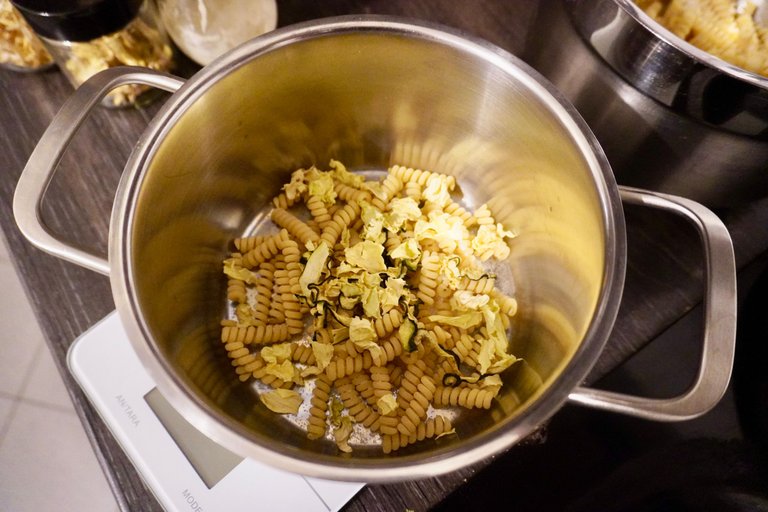
Since I’m vegetarian, I swapped the pork fat in the recipe for truffle oil and added some sun-dried tomatoes. The result? Absolutely delicious!
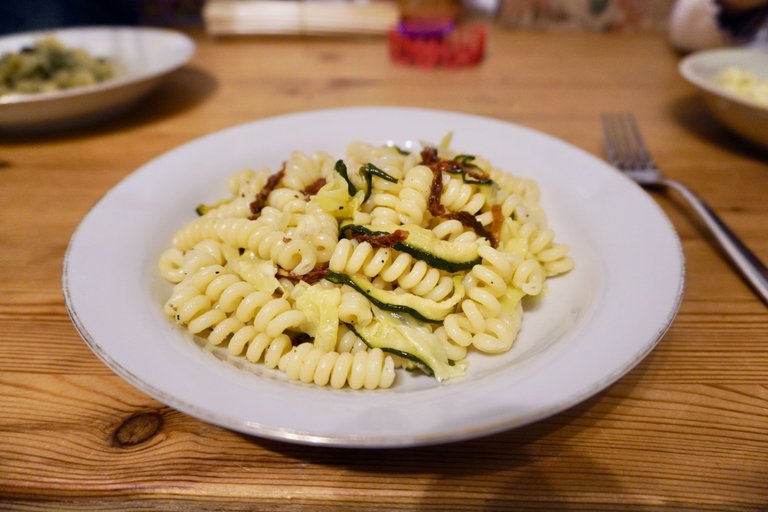
In summer, zucchini becomes incredibly cheap in Germany, and my sunny balcony will be perfect for drying them in bulk. I’m looking forward to creating colorful batches using green and yellow zucchinis.
Precautions when drying on heaters
Drying vegetables on a heater is convenient, but there are some precautions. If the heater is too hot, the vegetables might dry too quickly and become brittle. To prevent this, I place a cloth between the basket and the heater, and/or between the vegetables and the basket. This slows the process slightly and ensures better results.
Conclusion
Heating costs are frustratingly high, but they’re unavoidable, and I want to stay warm. Using this warmth to make dried foods has been an unexpectedly enjoyable solution, and I’ve fallen down the rabbit hole of dried food experiments.
One of the biggest advantages of dried foods is that they don't need fridge. After two months of exploring dried foods, I’m excited to keep experimenting and brush up my techniques.
Sustainability and environmental care are important, but they have to be enjoyable and playful to be life long practice. I hope to continue my dried food journey with lots of fun along the way.
ドイツでは暖房費が高いのですが、寒いのはこたえるので、控えめに暖房をつけています。でもなんかもったいない・・・必要なのだけれどもったいない!!
そんな中、友人が日本から買ってきてくれた按田優子さんの『食べつなぐレシピ』という本で、手軽に乾物を作れることを知りました。
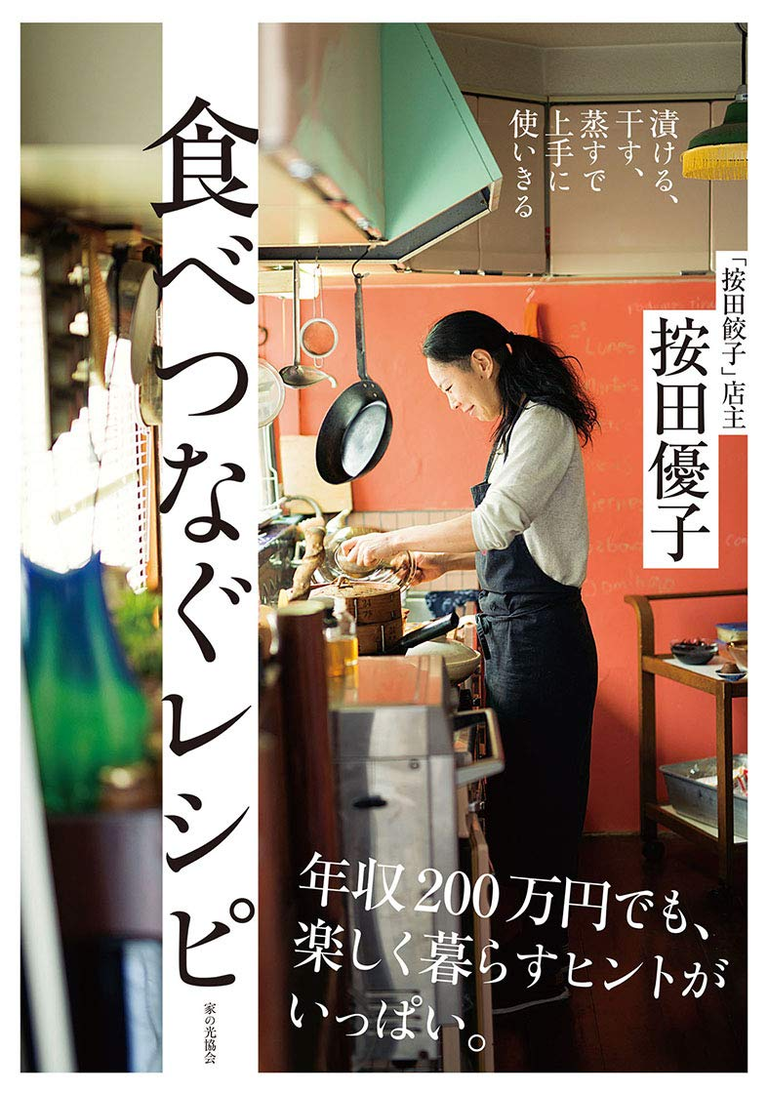
按田さんの本にある乾物の作り方では暖房は使わないのですが、ふと思い立って暖房の上で乾かしてみると早い早い。切り干し大根から始まって、椎茸、舞茸、マッシュルーム、生姜、キャベツ、ズッキーニなどなど、いろいろなものを乾かしまくっています。余ったら薄くスライスしてとりあえず暖房の上へ 😂

中でも切り干し大根はドイツではなかなか手に入らないのでとてもうれしく、毎週のように大根を買ってむいた皮を干すようになり、今では切り干し大根富豪です。いつでも切り干し大根の炒め煮が食べられるなんて幸せです 🥺

オーガニックショップで半分乾きかけたドイツ産の椎茸が並んでいたことがあって、「乾かしてくれた上にこのお値段でありがとう」(ドイツではグラム売りなので乾いていると安い)と大量に買ってきました。ドイツでは、生椎茸はドイツ産のものが手に入るのですが、干し椎茸はオーガニックショップでも輸入もののみで、環境負荷がなあと気になっていました。そして高いので、手間をかけずに家で作れるとうれしいのです。

椎茸は天日に当てるとビタミンDが増加するとのことで、申し訳程度にバルコニーで天日に当ててみましたが、この日照量ではどうなのでしょう 😅 いずれにせよ暖房干し椎茸が大量にできてうれしいです。

生姜も乾かしておくと便利です。うちではガンガン使うのは私だけで、一つ買ってきてごろっと台所に置いておくと、最後は乾き切ってしまうこともあり、もったいないなあと思っていました。生姜のスライスは以前はオーブンで作ってみたのですが、面倒でやめた経緯があるのですが、暖房を使えば、2日ほど放置しておくだけで完成します。使う時はこのまま料理に入れてもいいし、力を入れたら指で砕けるので小さくするのも楽々です。

気が早すぎますが、夏に向けて試してみたのが乾燥ズッキーニです。これは按田さんの本で紹介されていたもので、乾燥ズッキーニをパスタと茹でて、塩豚をつくったときの油をかけると手軽でおいしいパスタの出来上がりということで、試さずにはいられませんでした。

私は一応ベジタリアンなので、塩豚の油はトリュフオイルで代用しました。ドライトマトも加えてパスタの出来上がり。

これもおいしいのなんの。夏場はドイツではズッキーニが激安になり、我が家のバルコニーの日当たりの良さをいかして乾燥ズッキーニを作ろうと今から楽しみです。黄色や緑やいろいろな色のズッキーニで作るも楽しそうです。
暖房で作るときの注意点
スライスして並べるだけの便利で手軽な暖房で作る乾燥野菜ですが、ちょっとした注意点も。暖房がきつすぎて急速に乾燥してしまうと、出来上がった乾燥野菜がもろくなるようです。かごと暖房や野菜とカゴの間に布巾を挟むようにしたらこの問題は解消したので、かびさせてはいけないけれど、ちょっとゆっくりめに乾燥するのがよさそうです。
おわりに
高騰する暖房費には泣きそうになるものの、払わないわけにはいかないし、暖かく過ごしたいし、乾物を作るのにも熱を使い出したら乾物沼にハマってしまいました。
乾物のよさは常温で保存できるところです。乾物生活をはじめて2ヶ月ほど。これからもいろいろ乾燥させてみて、乾物を作って使う腕を磨いていきたいです。
エコ、環境保護って大事だけれど、苦しいと続かず、楽しく取り組んでいきたいなと思うのでした。
